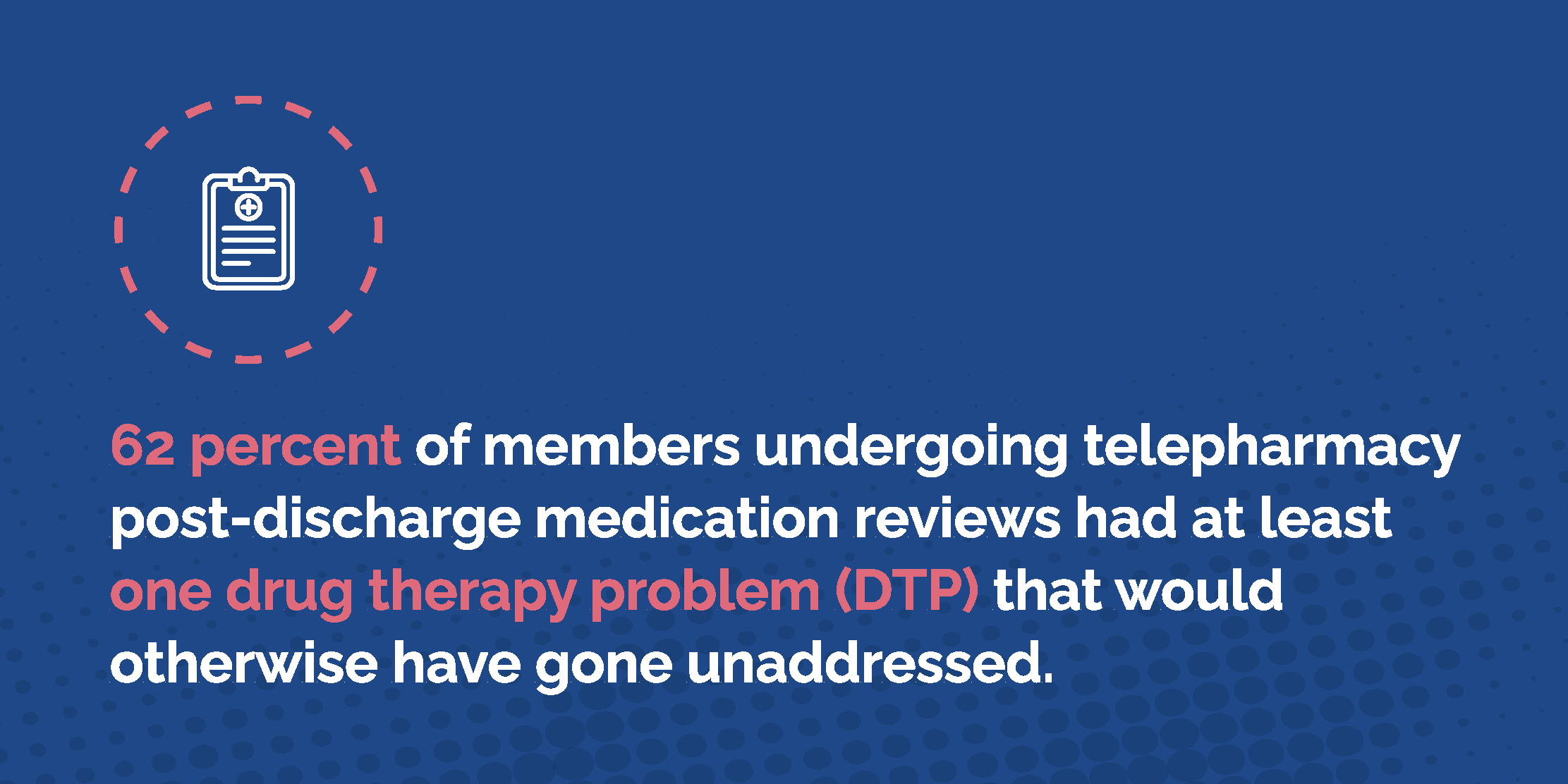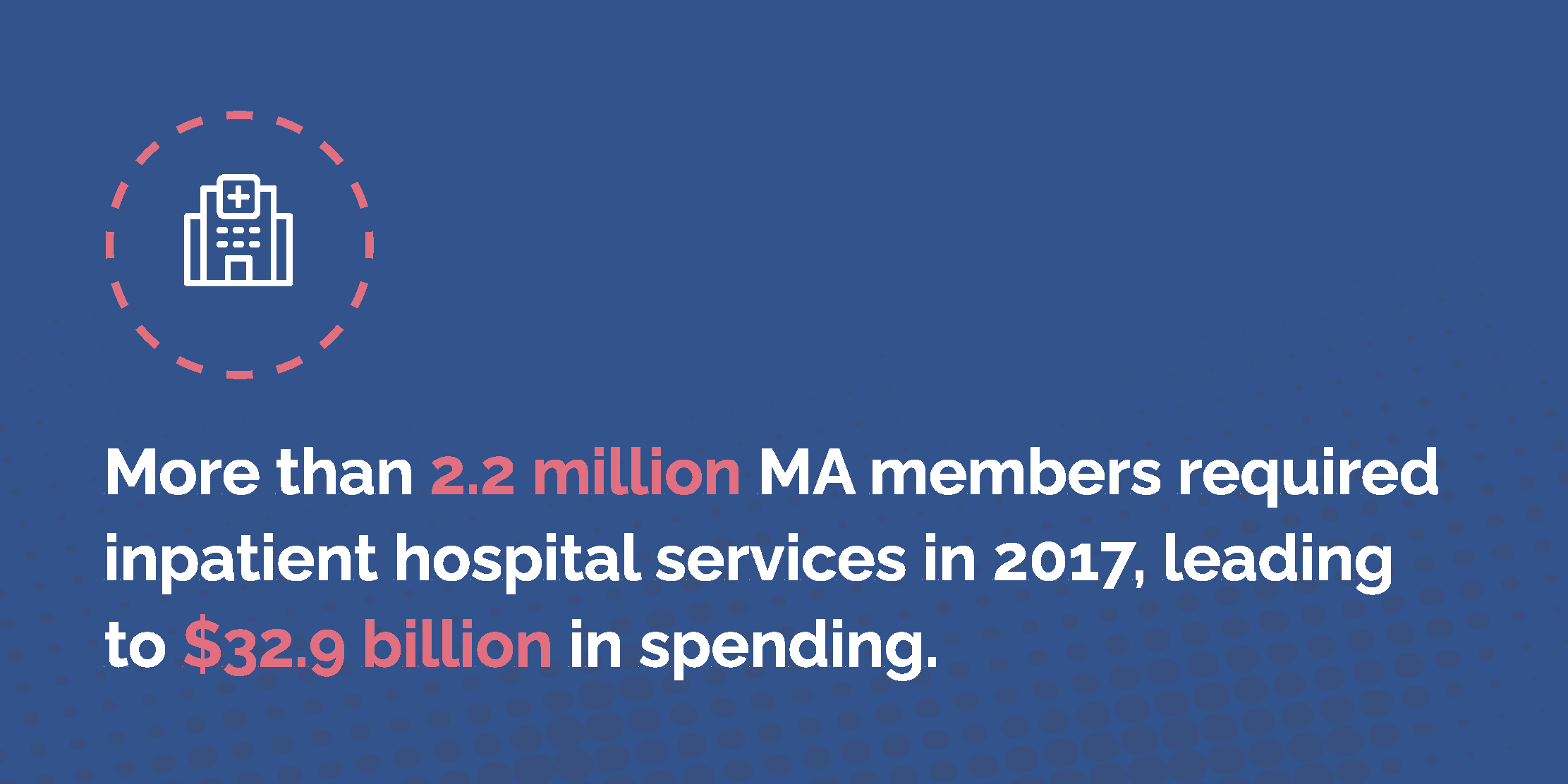Published on .
Medication reconciliation is an important part of the transitions of care (TRC) post-discharge measurement for Medicare Advantage Star Ratings
For Medicare Advantage (MA) members, hospitalizations are disruptive, disorienting, and expensive events, costing MA plans $32.9 billion in 2017. In addition to the high monetary costs, these events also result in incalculable amounts of stress, worry, and confusion for patients and their family members.
As dire – and expensive – as it is for an older person to be hospitalized, a readmission within 30 days of a discharge might be even worse. But 30-day readmissions are often easily preventable – so much so that CMS considers the frequency of these events a fundamental mark of quality for health plans.
Successfully avoiding a preventable readmission requires significant collaboration between hospital staff, health plans, pharmacists, and primary care providers. Medicare has established a series of evidence-based steps, known as transitional care management (TCM), to help standardize the handoff of patients from one care setting to another. This structured, multi-step process is designed to ensure that patients understand their diagnoses, have access to resources to help them recover, and can adapt to new care plans, including changes to their prescription medications.
Medication reconciliation is the process of comparing current and new medications to ensure that a patient’s medication list is as complete and accurate as possible. This process is especially important after a hospitalization, surgery, new diagnosis, or new treatment plan. Medication reconciliation is designed to keep patients safe by preventing omissions and duplications, dosing errors, or potentially serious drug interactions. Currently, CMS measures the success of these efforts through a single quality measure, Medication Reconciliation Post-Discharge (MRP).
Developing robust, integrated medication reconciliation techniques are about to take on even more importance.
The Centers for Medicare & Medicaid Services (CMS) recently announced that in Contract Year 2022, MA Star Ratings will change from the MRP measure to the more holistic Transitions of Care (TRC) measure. This will prompt important alterations to the way MA plans manage transitions of care and impact their Star Ratings.
What does the new TRC measure entail?
CMS defines a transition of care as any time a patient moves from one care setting to another, whether from a primary care provider to a specialist, from an inpatient bed to a skilled nursing facility, or from the hospital to the home.
As compared to the MRP measure, the TRC measure is far more rigorous, gauging how well MA plans are working to bring these positive outcomes to beneficiaries at scale. The measure assesses four key parts of the process:
Description of TRC Measure Requirements
- Notification of inpatient admission: Documentation in the medical record of receipt of notification of inpatient admission on the day of admission or within the following 2 calendar days
- Receipt of discharge information: Documentation in the medical record of receipt of discharge information on the day of discharge or within the following 2 calendar days
- Patient engagement after inpatient discharge: Evidence of contact with the patient within 30 days of discharge, including an office visit, telehealth visit, or home visit
- Medication reconciliation post discharge: Medication reconciliation conducted on the date of discharge through 30 days after discharge (31 total days)
The measure reviews the percentage of discharges that include all four indicators of a successful transition of care. MA plans have had a chance to get familiar with the measure throughout 2021. TRC will become a fully-fledged component of the Star Ratings system starting in 2022.
| Requirements | Medication Reconciliation Post Discharge (MRP) | Transitions of Care (TRC) |
| Notification of inpatient admission and discharge | X | |
| Provider receipt of those notifications | X | |
| Patient engagement after an inpatient discharge | X | X |
| Medication reconciliation activities after discharge | X | X |
Why is medication reconciliation during TCM so important?
Medication reconciliation is a key part of the TCM process and the TRC measure because medications often change during a hospitalization. MA members may need to start a new drug, discontinue an existing prescription, or change their dosage. However, these instructions are often lost or misinterpreted during the unsettled period after a patient returns home.
Preventable readmissions and other serious issues often follow. Researchers have found that 26 percent of readmissions are medication-related and potentially avoidable. This is especially true in rural areas, where nearly 30 percent of readmissions are preventable, as opposed to only 17 percent in urban settings. Patient non-adherence and incorrect dosing were two of the major causes of these preventable events.

Additionally, a 2020 AdhereHealth analysis of a sample cohort for a Dual Special Needs (D-SNP) MA Plan found that 62 percent of members undergoing telepharmacy post-discharge medication reviews had at least one drug therapy problem (DTP) that would otherwise have gone unaddressed. A quarter of those patients also required ongoing help with medication adherence monitoring.
With approximately one in five Medicare beneficiaries experiencing a 30-day readmission in any given year, MA plans that do not prioritize robust medication reconciliation reviews after a hospital discharge risk significant increases in spending, poor outcomes, and lower results on the Star Ratings scale. The public-facing rating system is heavily weighted toward medication management and plays an outsized role in member decision-making when choosing a health plan.
How can MA plans use medication reconciliation to reduce hospital readmission rates?
Health plans need to arm themselves with several new tools and strategies to prevent avoidable readmissions, meet the goals of the new TRC measure, and keep patients on track with medication adherence.
Access to timely, accurate data and analytics on hospital events will be essential to success.
Without daily notifications when a member is admitted or discharged from a hospital, a health plan cannot initiate TCM within the most effective timeframe. To be effective on the TRC measure, MA plans also need real-time pharmacy claims data to get the full picture of pre-hospital admission patient profiles. Successful MA plans have robust predictive adherence analytics and intelligent workflows so pharmacists can engage with recently discharged individuals and match their interventions to the member’s unique needs.
Health plans will also need to augment these capabilities with actionable, personalized data about social determinants of health (SDOH).
SDOH tools and data can help specially trained pharmacists identify and address obstacles to post-discharge home care and ongoing medication adherence.
Leveraging pharmacist-led interventions to succeed at TRC
Pharmacists can use these engagement opportunities to offer education, arrange compliance packaging and home delivery of prescriptions for better adherence, and coordinate referrals to community-based services to make certain that members have a thorough understanding of how to manage their health and avoid a return to the hospital.
These pharmacist-led interventions can have a major impact on 30-day readmission rates. A recent study indicates that medication interventions headed by pharmacists can support a 9.6 percent reduction rate in readmissions at 30 days, with the reduction increasing dramatically to nearly 30 percent at the 180-day mark.
By integrating proactive, personalized, and data-driven medication reconciliation strategies into their workflows, health plans can succeed with the new TRC measure, avoid 30-day readmissions, keep members healthier at home and improve Star Ratings. These improvements have a long-term impact on health plan success: In performance year 2021, Star Ratings account for $11.6 billion in Quality Bonus Payments (QBP) by CMS. In addition, research illustrates MA plans with higher Star Ratings achieve an average 10 percent increase in enrollment for each 1 “Star” aggregate achieved.
Placing pharmacists at the center of TCM ensures that medication reconciliation is always a focal point of the post-discharge period. It also opens lines of communication for sustained engagement with members who may need longer-term support to improve medication adherence and overcome socioeconomic challenges.
Avoidable readmissions present a complex problem for health plans, providers, and MA members with acute and chronic conditions. Established transitional care management techniques with an emphasis on medication reconciliation will be an important part of the solution.
With a better understanding of the critical role of medication reviews after a hospital event, MA plans can build better TCM processes that zero in on the underlying causes of preventable readmissions. Highly trained pharmacists and timely, comprehensive data to supplement TCM can reduce spending and improve outcomes, which will be reflected in the health plan’s performance on the new TRC measure and their overall success in the MA Star Ratings scores.


